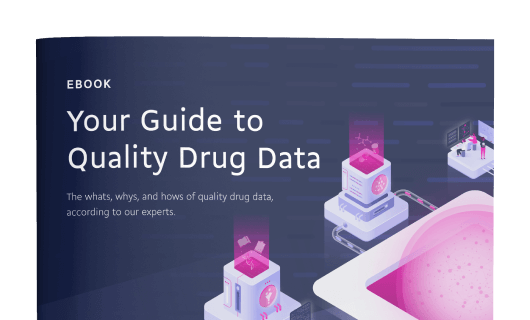5-(5-CHLORO-2-THIENYL)-N-{(3S)-1-[(1S)-1-METHYL-2-MORPHOLIN-4-YL-2-OXOETHYL]-2-OXOPYRROLIDIN-3-YL}-1H-1,2,4-TRIAZOLE-3-SULFONAMIDE
Explore a selection of our essential drug information below, or:
Identification
- Generic Name
- 5-(5-CHLORO-2-THIENYL)-N-{(3S)-1-[(1S)-1-METHYL-2-MORPHOLIN-4-YL-2-OXOETHYL]-2-OXOPYRROLIDIN-3-YL}-1H-1,2,4-TRIAZOLE-3-SULFONAMIDE
- DrugBank Accession Number
- DB07804
- Background
Not Available
- Type
- Small Molecule
- Groups
- Experimental
- Structure
- Weight
- Average: 488.969
Monoisotopic: 488.070336899 - Chemical Formula
- C17H21ClN6O5S2
- Synonyms
- Not Available
Pharmacology
- Indication
Not Available
 Reduce drug development failure ratesBuild, train, & validate machine-learning modelswith evidence-based and structured datasets.Build, train, & validate predictive machine-learning models with structured datasets.
Reduce drug development failure ratesBuild, train, & validate machine-learning modelswith evidence-based and structured datasets.Build, train, & validate predictive machine-learning models with structured datasets.- Contraindications & Blackbox Warnings
 Prevent Adverse Drug Events TodayTap into our Clinical API for life-saving information on contraindications & blackbox warnings, population restrictions, harmful risks, & more.Avoid life-threatening adverse drug events with our Clinical API
Prevent Adverse Drug Events TodayTap into our Clinical API for life-saving information on contraindications & blackbox warnings, population restrictions, harmful risks, & more.Avoid life-threatening adverse drug events with our Clinical API- Pharmacodynamics
Not Available
- Mechanism of action
Target Actions Organism UCoagulation factor X Not Available Humans - Absorption
Not Available
- Volume of distribution
Not Available
- Protein binding
Not Available
- Metabolism
- Not Available
- Route of elimination
Not Available
- Half-life
Not Available
- Clearance
Not Available
- Adverse Effects
 Improve decision support & research outcomesWith structured adverse effects data, including: blackbox warnings, adverse reactions, warning & precautions, & incidence rates. View sample adverse effects data in our new Data Library!Improve decision support & research outcomes with our structured adverse effects data.
Improve decision support & research outcomesWith structured adverse effects data, including: blackbox warnings, adverse reactions, warning & precautions, & incidence rates. View sample adverse effects data in our new Data Library!Improve decision support & research outcomes with our structured adverse effects data.- Toxicity
Not Available
- Pathways
- Not Available
- Pharmacogenomic Effects/ADRs
- Not Available
Interactions
- Drug Interactions
- This information should not be interpreted without the help of a healthcare provider. If you believe you are experiencing an interaction, contact a healthcare provider immediately. The absence of an interaction does not necessarily mean no interactions exist.Not Available
- Food Interactions
- Not Available
Categories
- Drug Categories
- Not Available
- Chemical TaxonomyProvided by Classyfire
- Description
- This compound belongs to the class of organic compounds known as dipeptides. These are organic compounds containing a sequence of exactly two alpha-amino acids joined by a peptide bond.
- Kingdom
- Organic compounds
- Super Class
- Organic acids and derivatives
- Class
- Carboxylic acids and derivatives
- Sub Class
- Amino acids, peptides, and analogues
- Direct Parent
- Dipeptides
- Alternative Parents
- Alpha amino acids and derivatives / 2,5-disubstituted thiophenes / Pyrrolidine-2-ones / Organosulfonamides / Aryl chlorides / N-alkylpyrrolidines / Morpholines / Triazoles / Tertiary carboxylic acid amides / Aminosulfonyl compounds show 11 more
- Substituents
- 1,2,4-triazole / 2,5-disubstituted thiophene / 2-pyrrolidone / Alpha-amino acid or derivatives / Alpha-dipeptide / Aminosulfonyl compound / Aromatic heteromonocyclic compound / Aryl chloride / Aryl halide / Azacycle show 30 more
- Molecular Framework
- Aromatic heteromonocyclic compounds
- External Descriptors
- sulfonamide, organochlorine compound, thiophenes, morpholines, pyrrolidin-2-ones, triazoles (CHEBI:47428)
- Affected organisms
- Not Available
Chemical Identifiers
- UNII
- Not Available
- CAS number
- Not Available
- InChI Key
- FKCQUVAGEOSYRU-QWRGUYRKSA-N
- InChI
- InChI=1S/C17H21ClN6O5S2/c1-10(15(25)23-6-8-29-9-7-23)24-5-4-11(16(24)26)22-31(27,28)17-19-14(20-21-17)12-2-3-13(18)30-12/h2-3,10-11,22H,4-9H2,1H3,(H,19,20,21)/t10-,11-/m0/s1
- IUPAC Name
- 5-(5-chlorothiophen-2-yl)-N-[(3S)-1-[(2S)-1-(morpholin-4-yl)-1-oxopropan-2-yl]-2-oxopyrrolidin-3-yl]-1H-1,2,4-triazole-3-sulfonamide
- SMILES
- [H][C@@](C)(N1CC[C@]([H])(NS(=O)(=O)C2=NNC(=N2)C2=CC=C(Cl)S2)C1=O)C(=O)N1CCOCC1
References
- General References
- Not Available
- External Links
- PubChem Compound
- 16040261
- PubChem Substance
- 99444275
- ChemSpider
- 13168809
- BindingDB
- 17655
- ChEMBL
- CHEMBL220513
- ZINC
- ZINC000016052224
- PDBe Ligand
- G15
- PDB Entries
- 2j94
Clinical Trials
- Clinical Trials
Clinical Trial & Rare Diseases Add-on Data Package
Explore 4,000+ rare diseases, orphan drugs & condition pairs, clinical trial why stopped data, & more. Preview package Phase Status Purpose Conditions Count Start Date Why Stopped 100+ additional columns Unlock 175K+ rows when you subscribe.View sample data
Pharmacoeconomics
- Manufacturers
- Not Available
- Packagers
- Not Available
- Dosage Forms
- Not Available
- Prices
- Not Available
- Patents
- Not Available
Properties
- State
- Solid
- Experimental Properties
- Not Available
- Predicted Properties
Property Value Source Water Solubility 0.329 mg/mL ALOGPS logP 0.79 ALOGPS logP 0.36 Chemaxon logS -3.2 ALOGPS pKa (Strongest Acidic) 7.17 Chemaxon pKa (Strongest Basic) -2.5 Chemaxon Physiological Charge -1 Chemaxon Hydrogen Acceptor Count 7 Chemaxon Hydrogen Donor Count 2 Chemaxon Polar Surface Area 137.59 Å2 Chemaxon Rotatable Bond Count 5 Chemaxon Refractivity 123.49 m3·mol-1 Chemaxon Polarizability 47.33 Å3 Chemaxon Number of Rings 4 Chemaxon Bioavailability 1 Chemaxon Rule of Five Yes Chemaxon Ghose Filter No Chemaxon Veber's Rule No Chemaxon MDDR-like Rule No Chemaxon - Predicted ADMET Features
Property Value Probability Human Intestinal Absorption + 0.9637 Blood Brain Barrier - 0.8022 Caco-2 permeable - 0.6774 P-glycoprotein substrate Substrate 0.6449 P-glycoprotein inhibitor I Non-inhibitor 0.6008 P-glycoprotein inhibitor II Non-inhibitor 0.9232 Renal organic cation transporter Non-inhibitor 0.8496 CYP450 2C9 substrate Non-substrate 0.6362 CYP450 2D6 substrate Non-substrate 0.7885 CYP450 3A4 substrate Substrate 0.5507 CYP450 1A2 substrate Non-inhibitor 0.8067 CYP450 2C9 inhibitor Non-inhibitor 0.6131 CYP450 2D6 inhibitor Non-inhibitor 0.8501 CYP450 2C19 inhibitor Non-inhibitor 0.6502 CYP450 3A4 inhibitor Non-inhibitor 0.765 CYP450 inhibitory promiscuity Low CYP Inhibitory Promiscuity 0.5888 Ames test Non AMES toxic 0.5876 Carcinogenicity Non-carcinogens 0.6984 Biodegradation Not ready biodegradable 0.6267 Rat acute toxicity 2.5720 LD50, mol/kg Not applicable hERG inhibition (predictor I) Weak inhibitor 0.8857 hERG inhibition (predictor II) Inhibitor 0.6628
Spectra
- Mass Spec (NIST)
- Not Available
- Spectra
Spectrum Spectrum Type Splash Key Predicted MS/MS Spectrum - 10V, Positive (Annotated) Predicted LC-MS/MS splash10-000i-0000900000-d231aba54f7c15d99212 Predicted MS/MS Spectrum - 10V, Negative (Annotated) Predicted LC-MS/MS splash10-000i-0000900000-4092c1b43c18e917d7ff Predicted MS/MS Spectrum - 20V, Positive (Annotated) Predicted LC-MS/MS splash10-059j-0003900000-c763d0f1ae64824eba73 Predicted MS/MS Spectrum - 20V, Negative (Annotated) Predicted LC-MS/MS splash10-000e-2229600000-db9c076324e14e69b3ce Predicted MS/MS Spectrum - 40V, Positive (Annotated) Predicted LC-MS/MS splash10-002k-3368900000-65a532219b3a66723438 Predicted MS/MS Spectrum - 40V, Negative (Annotated) Predicted LC-MS/MS splash10-0pbc-1125900000-ac9709621f23291d870a Predicted 1H NMR Spectrum 1D NMR Not Applicable Predicted 13C NMR Spectrum 1D NMR Not Applicable - Chromatographic Properties
Collision Cross Sections (CCS)
Adduct CCS Value (Å2) Source type Source [M-H]- 204.22798 predictedDeepCCS 1.0 (2019) [M+H]+ 206.62355 predictedDeepCCS 1.0 (2019) [M+Na]+ 212.53644 predictedDeepCCS 1.0 (2019)
Targets

Build, predict & validate machine-learning models
Use our structured and evidence-based datasets to unlock newinsights and accelerate drug research.
Use our structured and evidence-based datasets to unlock new insights and accelerate drug research.
- Kind
- Protein
- Organism
- Humans
- Pharmacological action
- Unknown
- General Function
- Serine-type endopeptidase activity
- Specific Function
- Factor Xa is a vitamin K-dependent glycoprotein that converts prothrombin to thrombin in the presence of factor Va, calcium and phospholipid during blood clotting.
- Gene Name
- F10
- Uniprot ID
- P00742
- Uniprot Name
- Coagulation factor X
- Molecular Weight
- 54731.255 Da
References
- Berman HM, Westbrook J, Feng Z, Gilliland G, Bhat TN, Weissig H, Shindyalov IN, Bourne PE: The Protein Data Bank. Nucleic Acids Res. 2000 Jan 1;28(1):235-42. [Article]
Drug created at September 15, 2010 21:26 / Updated at June 12, 2020 16:52

